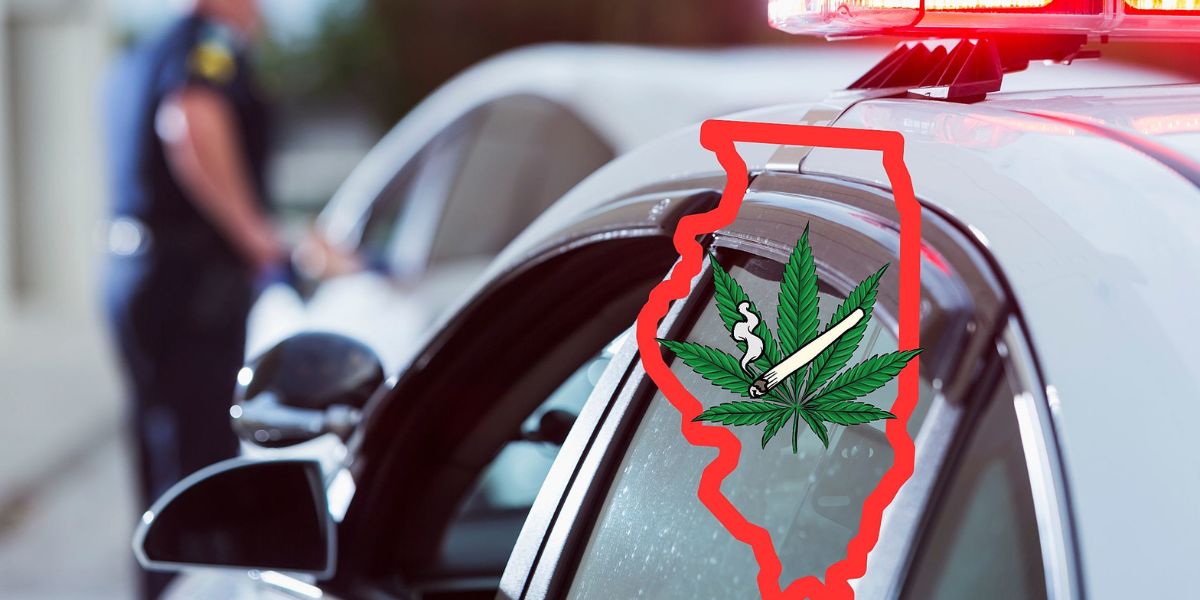You’re driving along the sunny coast of Miami with the windows down and the music blaring when you notice flashing lights in your rearview mirror. You pull over, feeling a little bit of dread, and the officer walks up to your car.
The conversation changes direction after your license and registration are verified. The officer asks, “Is that marijuana I smell?” You haven’t been smoking anything, although you did have a companion who rode with you earlier. Now you are feeling anxious. Is it legal for the police to check your car just because they smell marijuana?
The answer in Florida, like many other legal matters, is not a straightforward yes or no. It is determined by a complicated interaction between recent revisions in marijuana laws, the idea of probable cause, and the Fourth Amendment’s protection against arbitrary searches and seizures. This article will explore the legal complexities to address the important question: can police in Florida search your car just because they smell marijuana?
A Change in the Legal Environment: The Growth of Medical Marijuana and Hemp
Florida has made major changes to its marijuana regulations, similar to many other states. In 2016, the state made medicinal marijuana lawful for people who have certain debilitating diseases and meet the requirements. This new terrain complicated law enforcement’s ability to cite the scent of marijuana as a reason to search.
In the past, all types of marijuana were banned, which made things quite straightforward for law enforcement. However, with the advent of medical marijuana, the question arose: how can authorities tell the difference between legal and illegal marijuana?
The introduction of hemp, a cannabis plant that contains just tiny quantities of THC, the psychoactive component that creates the “high” associated with marijuana, adds to the complexity of the situation. Products made from hemp, such as CBD oil, have gained popularity due to its possible health advantages, and these products often smell similar to marijuana.
The Fourth Amendment and the Concept of Probable Cause
Individuals are protected from unreasonable searches and seizures by the Fourth Amendment of the United States Constitution. This implies that law enforcement typically requires a warrant to search your vehicle.
However, there are exceptions, one of which is probable causation. When an officer has a reasonable opinion that a crime is being committed or that evidence of a crime is present, probable cause exists. Florida courts have regularly found in the past that the scent of marijuana is enough reason to search an automobile.
The New Frontier: Is the Smell of Marijuana Still Enough to Justify a Search?
The legalization of medical marijuana and hemp has made the legal situation more complicated. This precise topic was addressed in the 2021 case State v. Hurd, which was heard in Florida’s Second District Court of Appeals.
The court recognized that legalized hemp could create problems, such as officers confusing its fragrance with that of marijuana. However, the court finally ruled that the smell of smoked marijuana may still be considered a reasonable justification for a search.
The court’s rationale was based on the difference between marijuana that had been burned and marijuana that had not been burned. The court decided that burnt marijuana was a greater sign of recent drug use than unburnt marijuana, which may come from hemp goods. On the other hand, this decision has resulted in some ambiguity. What will happen if the police smells marijuana that has not been burned, or if the fragrance is weak? Is that enough for them to search the car?
Other Factors That Affect Search Authorization Besides the Smell
When determining whether there is probable cause, cops take into account the smell of marijuana, among other things. Here are some other factors that could affect an officer’s choice to search your vehicle:
- If the officer sees drug paraphernalia, such as rolling papers or pipes, in plain sight, this increases their case for probable cause.
- Driver behavior: Erratic driving, anxiety, or bloodshot eyes might arouse suspicion and signal potential impairment.
- Passenger admissions: If a passenger admits to having marijuana, this could provide the officer a reason to search the vehicle.
Knowing Your Rights: What to Do During a Traffic Stop
If you are stopped by the police and the officer thinks you have been using marijuana, it is crucial to be kind and respectful. You have the right to stay quiet and to decline a search of your vehicle. Here are a few suggestions:
- Be respectful but assertive: If you do not want your vehicle to be searched, you might say, “I do not consent to a search of my vehicle.”
- Do not provide information unless asked: Unless it is absolutely necessary, do not acknowledge that you smoke marijuana or have it in the car.
- Be aware of when to ask for a lawyer: If you are uncertain about your rights or pushed in any way, kindly ask to talk with a lawyer before agreeing to anything.
Final Thoughts
The laws regarding marijuana searches in Florida are changing. Even though the smell of burnt marijuana can still be considered probable cause in some situations, the presence of medicinal marijuana and hemp products complicates matters. Keep in mind that the Fourth Amendment guarantees your right to privacy.




